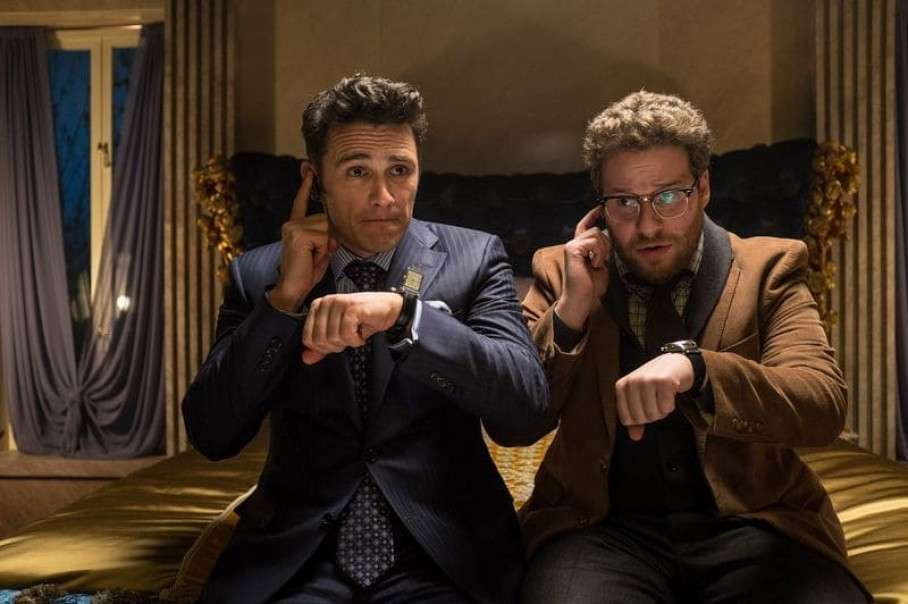The Volokh Conspiracy
Mostly law professors | Sometimes contrarian | Often libertarian | Always independent
Thugs win again -- movie theaters cancel showing of 'The Interview' following threats of terrorist attack

Deadline Hollywood mentions several such theater chains. Yesterday, the Department of Homeland Security stated that there was "no credible intelligence" that such threatened terrorist attacks would take place, but unsurprisingly, some chains are being extra cautious here.
I sympathize with the theaters' situation - they're in the business of showing patrons a good time, and they're rightly not interested in becoming free speech martyrs, even if there's only a small chance that they'll be attacked. Moreover, the very threats may well keep moviegoers away from theater complexes that are showing the movie, thus reducing revenue from all the screens at the complex.
But behavior that is rewarded is repeated. Thugs who oppose movies that are hostile to North Korea, China, Russia, Iran, the Islamic State, extremist Islam generally or any other country or religion will learn the lesson. The same will go as to thugs who are willing to use threats of violence to squelch expression they oppose for reasons related to abortion, environmentalism, animal rights and so on.
And the beauty of all this, from the perspective of those who want to suppress movies they dislike, is that they don't even actually have to bomb anything (something that's very risky). All they need to do is put out some well-anonymized threats, and they have a good chance of prevailing. To be sure, it helps if they can back up the threats with something (such as a successful hacking attack), but the threats might succeed even without that. If terrorist threats worked with "The Interview," even despite DHS's statements that there's no credible intelligence supporting a risk of actual violence, they might well work elsewhere as well. That, I think, is the lesson that many will take away.
I don't know what the answer is; as I said, I can see why the theaters wouldn't want to put themselves, their employees and their customers at risk here, even if the risk is small. And there's certainly no First Amendment problem with the theaters' doing this; these are private entities, who can choose to give in to the "heckler's veto" if they wish. It's a very unpleasant situation all around, and nothing good will come of it.


Hide Comments (0)
Editor's Note: We invite comments and request that they be civil and on-topic. We do not moderate or assume any responsibility for comments, which are owned by the readers who post them. Comments do not represent the views of Reason.com or Reason Foundation. We reserve the right to delete any comment for any reason at any time. Comments may only be edited within 5 minutes of posting. Report abuses.
Please to post comments
Mute this user?
Ban this user?
Un-ban this user?
Nuke this user?
Un-nuke this user?
Flag this comment?
Un-flag this comment?